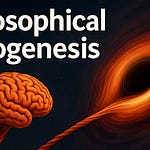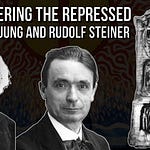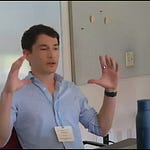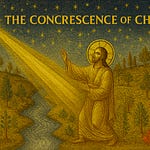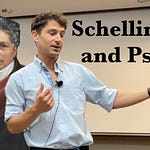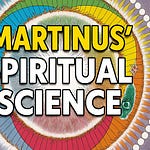The title of the article Ben Snyder and I are discussing is "The Objectivity of Whitehead's Propositions: An Explication of the Truth-Relation" in Process Studies 53 (2):256-274 (2024).
Overview of Ben’s Main Argument
Ben begins with a summary of his paper’s main argument, which I’ll try to capture below.
Propositions, for Whitehead, are more than statements in language: they are metaphysical “lures” composed of actual entities (as logical subjects) and an eternal object (as the predicate). A proposition is true if those actual entities really exemplify the predicate in question.
Ben criticizes views that treat a proposition’s truth-value as contingent upon how some subject feels or entertains it. He notes that some scholars (eg, Isabelle Stengers, Brian Massumi and Erin Manning, and others) have implied that Whitehead’s propositions are not truth-bearing until a subject prehends them. Ben argues this misreads Whitehead.
Ultimately, Ben sees Whitehead as arguing for a common-sense style correspondence theory: a proposition is about real individuals and states of affairs in the world, and it is true or false depending on whether that structure of logical subjects + predicate is exemplified. Although Whitehead’s exact language is different from standard analytic philosophies of language, the underlying shape of the theory remains objectively anchored.
I find Ben’s framing compelling. From my vantage point, he effectively demonstrates that Whitehead’s texts do contain a fairly robust realism about propositions, contrary to purely subjectivist or relational stances. However, I also voice additional concerns about the role God plays in his account of truth.
Whitehead’s scheme includes the “primordial nature of God,” which grades eternal objects in terms of relevance via conceptual prehension, and the “consequent nature of God,” which physically prehends the many actual occasions of the world. My reading of Whitehead is that a proposition only gains its impartial truth-value in God’s consequent unification of the nexus of occasions composing the universe.
Thus, while no finite particular subject is needed to determine a proposition’s truth, there must still be a universal subject (God) whose all-inclusive prehension grounds the objective unity of propositions across time.
We also discuss how Whitehead’s theory of propositions deals with future facts. Strictly speaking, there is no such thing as “future facts,” since the universe is a creative advance and genuinely novel actual entities are arising all the time. So particular propositions about the future can’t be true or false “now,” in the usual sense, because you can’t have a proposition about an actual entity that doesn’t exist.
Whitehead does allow for general propositions about how future entities will conform to or diverge from the past. We note that Whitehead integrates a sophisticated account of statistical induction and non-statistical abduction (to borrow Peirce’s term). Non-statistical abduction relies upon the ordering of relevance provided by God’s primordial nature, suggesting that we can have a meaningful (though fallible) basis for anticipating how novelty will ingress in the future, not just by repeated patterns (efficient causes) but by a final cause (the lure of higher intensities or novel contrasts). In other words, instead of a purely random guess, Whitehead affirms final causality via God’s primordial nature instilling a sense of which eternal objects might intensify harmony or beauty, so novelty is guided rather than arbitrary. In Science and the Modern World, Whitehead suggests that this is how his metaphysics accounts for least action principles in physics.
I asked Ben whether he thought a proposition that is false now can become true in a subsequent occasion if the world comes to exemplify that possibility. This leads us to puzzle over whether truth-values can change over time.
Whitehead’s idea of a proposition as a lure accommodates novelty: an occasion can entertain a possibility that is not exemplified in the immediate past. If that possibility is taken up into the satisfaction of a concrescent occasion, subsequent occasions may indeed actualize something akin to that novelty—leading to related but technically new propositions that can be true of new entities.
Overall, I appreciate how Ben’s article reaffirms the objectivity of propositions—that Whitehead really does mean for truth and falsity to be anchored in how actuality exemplifies (or fails to exemplify) certain determinate characteristics. Yet the conversation highlights how much Whitehead’s system remains broader than a simple “naive realism.” Indeed, God’s primordial and consequent natures complicate how truth is realized or felt.
I would say Ben and I maintain a fruitful tension on these questions. While Whitehead maintains a classic-seeming correspondence theory of truth, I want to keep pressing on the theological side—particularly the question of whether Whitehead’s account of objective truth could ever be unmoored from the ultimate “universal subject” (God) who harmonizes all propositions.





